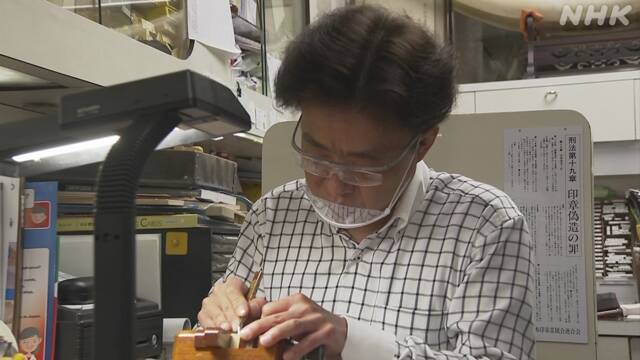Consultation with companies that provide "seal-free" electronic contract services One after another at 6:36 on September 27
In response to a request from all ministries and agencies to eliminate the need for stamping in administrative procedures as much as possible by the Minister in charge of administrative reform, Kono provides an electronic contract service that allows contracts without using a stamp. Companies are receiving many inquiries from private companies that are considering introducing it.
Electronic contracts exchange documents between corporations and individuals via the Internet without using paper contracts or seals, and IT-related companies in Tokyo have been electronic mainly for companies since five years ago. We sell contract services.
According to the company, the number of contracts increased from around March due to the spread of telecommuting due to the spread of the new coronavirus infection, and in April it was more than 6,500 companies, which is three times the number of the same month last year.
Furthermore, in response to Minister Kono's remarks, inquiries were received one after another from companies considering introduction, and on the 25th, about 100 companies received consultations.
According to the company, until now there were many contracts with financial institutions and real estate businesses that often use paper, but recently contracts with YouTubers etc. are increasing, so in the future, ministries and agencies We expect that the number of electronic contract services will expand even further in the private sector if efforts are made in Japan.
Daichi Tachibana, director of "Bengo4.com," said, "It's easy to conclude a contract in a few minutes, so once you experience it, you can't go back to the time when you used paper. At home with the new Corona. I think that electronic contracts will become more widespread, partly because I have been working harder. "
The owner of the Hanko store "remains as a culture"
On the other hand, the owner of a hanko shop in Tokyo said, "I think that hanko will remain as a culture because there are times when contracts are needed."
Keiichi Fukushima (47), who runs a stamp shop in Taito-ku, Tokyo, which has been running for more than 100 years since 1890, said, "The industry is aging and we are taking on the challenge of new things through digital." Some shopkeepers find it difficult, so many people may be surprised and anxious about Mr. Kono's remarks. However, of the huge amount of stamps that have been pushed, unnecessary parts have been sorted out. I think that is inevitable due to the passage of time. "
On the other hand, in preparation for digitalization, Mr. Fukushima is said to have been working to increase sales in the printing sector. Before Mr. Fukushima's management, the printing department accounted for about 10% of total sales, but as a result of steady sales such as printing business cards at companies, it has now increased to 50%.
In addition, as part of our efforts to make Japanese culture known overseas, we would like to actively make stamps for foreigners and preserve the culture of stamps.
Mr. Fukushima said, "I think there are things that will be omitted in digitalization, but there are times when it is necessary in transactions between companies, and I think that stamps will remain as a culture. In Japan, calligraphy and diplomas have been used for a long time. There is a history that has taken root by being told, so we would like to protect it as well. "

